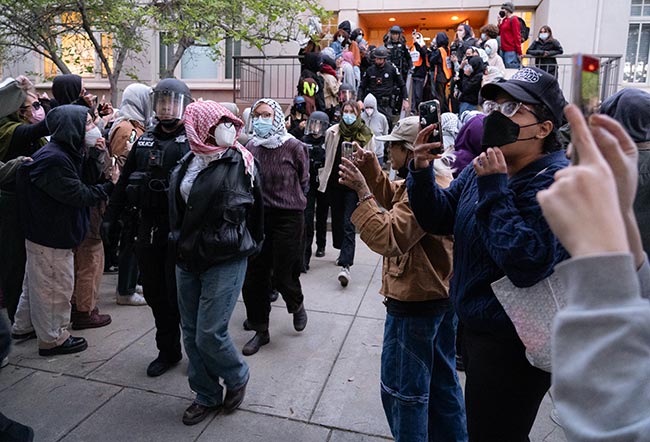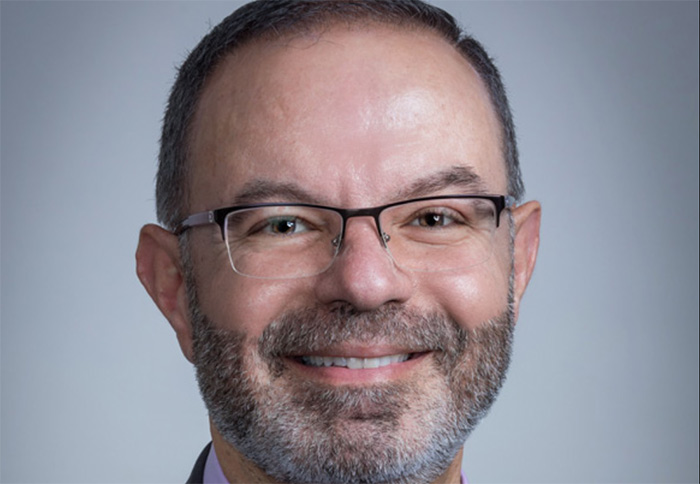Shaping the future for female scientists
If indeed “the future is female,” then Claremont is looking toward it with open arms.
Pomona College welcomed a talented future crop of female mathematicians, engineers and scientists this past weekend, as it hosted its first Sonia Kovalevsky Mathematics Day.
Organizers hope events such as this will help turn the tide against the underrepresentation of women in higher education mathematics. And, judging by the turnout among the middle and high school aged girls, they’re well on their way.
“It was overwhelming and wonderful,” said the event’s organizer, Pomona College Visiting Professor of Mathematics, Omayra Ortega. “We sold out so quickly.”
Initially she had planned on about 50 students and 15 teachers, but the free symposium ended up attracting more than 200 students, 27 teachers and several supportive parents. “It takes a while for an event to grow, establish its reputation, and for the word to get out. We assumed since it’s the first one, it would be small,” Ms. Ortega said.
The theme of the day was “making history with mathematics,” apropos for the event’s namesake, Sonia Kovalevsky, a trailblazing 19th century Russian mathematician. The goal was to inspire the next generation of young girls to study math in college, and to help make some headway in the still heavily male-dominated worlds of math-centric academia, science, technology and research.
“I feel like women are a resource that has not been tapped into,” Ms. Ortega said. “So, we need to encourage our girls to pursue these careers in STEM [science, technology, engineering and math]. We have no idea what the jobs are going to be in the future. We need to prepare everyone, including our girls, to have these analytical skills, to have these quantitative thinking skills and critical thinking skills so that they can jump into any job and solve any problems that they’re presented with.”
Ani Singh, a 15-year-old Claremont High School sophomore, took part in the origami and geometric paper models breakout session.
“We learned about the fourth dimension, which is something that you can’t really visualize,” she explained. “There’s an axis—the W axis, I think—and we can’t see it, but you can create 3D models and think about it.”
Ani, whose parents are both engineers, said she particularly enjoyed the career path discussion panel.
“That kind of pushed me forward, because they were all talking about their experiences with math, and how a lot of them didn’t think it was for them for a long time, and once they got to college they realized that math could be applied to so many things.”
Ms. Ortega, who is “39 and-a-half,” said she was buoyed by the strong response from the kids.
“The highlight for me was in overhearing participants talking about how they had learned things they didn’t know about the women pioneers in mathematics, or even basic things like how women had only recently earned the right to vote,” she said. “I think this motivated a lot of women to study STEM and mathematics, and that’s exactly the type of thing we as organizers want to hear. And also, just the smiles and the new friendships that were formed. It was really nice.”
The event’s keynote speaker was Jemma Lorenat, assistant professor of mathematics at Pitzer College. She’s a math historian, focusing on 19th century geometry, visualization and mediums of communication. Like Ms. Ortega, she is hoping to help inspire more young girls to think about careers in math.
“It’s a misconception that mathematics is a solo activity. Rather, it’s all about collaboration and collective contributions,” Ms. Lorenat said. “Students should do their best to find likeminded individuals with whom they can talk about and practice math (formally or informally). If they find a mathematician that they admire, then they should reach out. I would imagine most mathematicians would be flattered and respond.
“Finally, and most importantly, there should be no shame in asking questions when you don’t understand something in math. Being able to formulate a thoughtful question means that you care about the subject, not that you’re ignorant.”
Ms. Ortega grew up in New York City. She did her undergraduate work at Pomona College then went on to the University of Iowa, where she earned a PhD in applied mathematics and computational sciences. She organized her first Sonia Kovalevsky Mathematics Day during her last year there.
She then went to teach and do research at Arizona State University, where she led seven of the math symposiums. The inaugural Pomona event was created in partnership with the math departments at Cal Poly Pomona and Cal State Fullerton, with volunteers from all three schools.
“I felt that we had to do one at Pomona,” she said. “The support has been really great. This event has been welcomed by the administration and the faculty and the students as well. It gives me a good feeling to know that this atmosphere exists at Pomona.”
The plan is to build on the unqualified success of this year’s event, Ms. Ortega said, and to get young girls thinking, talking and dreaming about math.
“I really hope that in the Inland Empire, and in Claremont and the surrounding communities, that we can build a mathematics community out of this, and a better understanding that, yes, there is academic math, but there is also recreational math, and that math is fun, and that math is a career that you can pursue, and many women are pursuing this career. We’re here.”
It’s perhaps an opportune moment to be encouraging girls into STEM, with the #metoo movement so prevalent in the national conversation. “Absolutely,” Ms. Ortega agreed. “Let’s do it. I’m super down. Let’s rise together.”
—Mick Rhodes
mickrhodes@claremont-courier.com









0 Comments